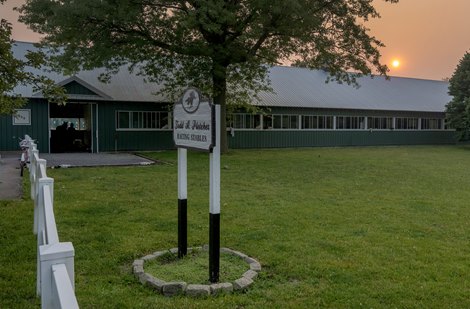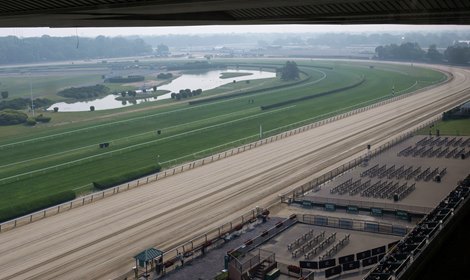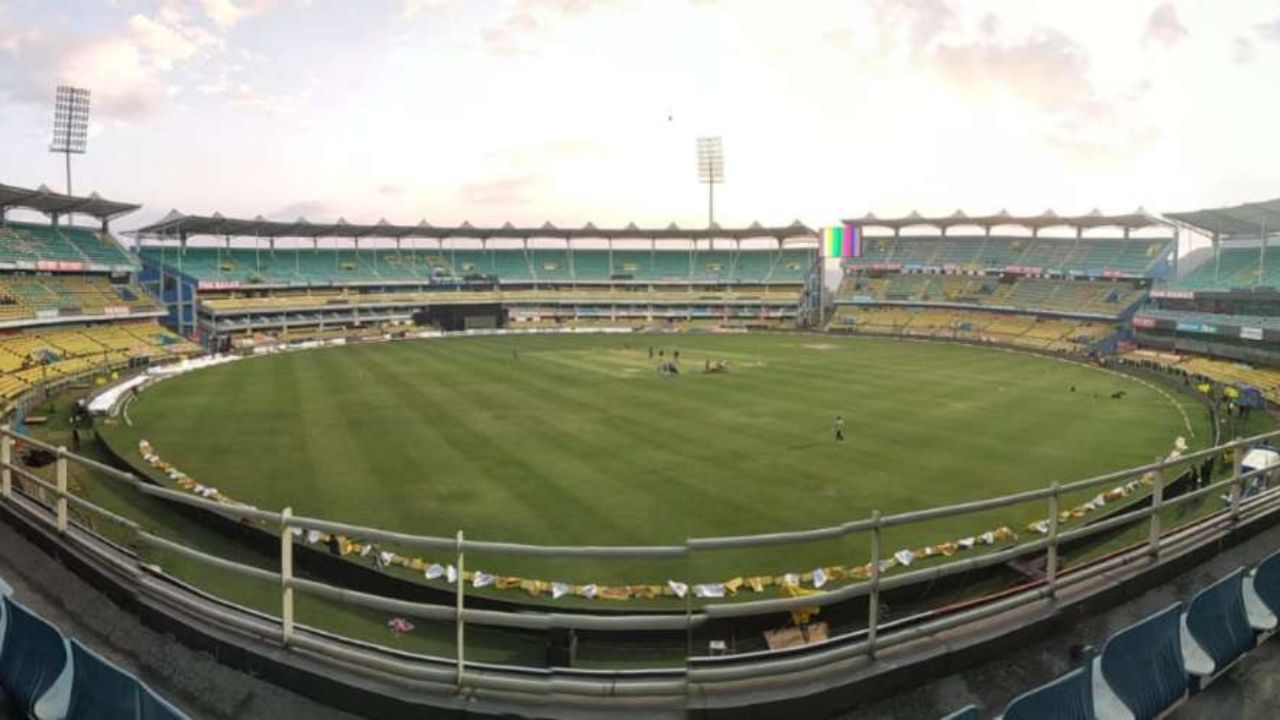For the past 160 years, stately Saratoga Race Course has gracefully weathered everything Mother Nature has tossed at it.
Rain, snow, hail, intense heat, numbing cold, lightning, twisters, hurricanes, floods, droughts. You name it. And you can also toss in a pandemic that kept the revered facility closed to the public for the 2020 season.
Yet this year, something new could be added to that list.
In years to come, the late spring and summer of 2023 in the Northeast will be remembered for a new phenomenon to the region that complicated everyday life and literally cast a cloud over all types of activities.
Namely, smoke from the Canadian wildfires.
Sign up for BloodHorse Daily
Smoke has already led to the kind of adverse air quality that forced the New York Racing Association to cancel two days of racing at the Belmont Park spring/summer meet: June 8 and June 30.
A third day would have been scrapped due to the infamous June 7 conditions that turned the New York City and Long Island skies an Armageddon-like orange if not for, quite fittingly, a dark day for racing that afternoon.
With the fires still raging, there’s no telling if some or any of the 40 racing dates during the eagerly anticipated July 13-Sept. 4 Saratoga meet will be affected by the smoke and the unhealthy air quality it can produce. Yet unlike the highly popular facility’s traditional nemesis, rain, the smoke could have a much greater impact. While rain might force the shifting of a grass race to the main track, if the Air Quality Index surpasses unhealthy levels NYRA would be forced to cancel racing or, in a best-case scenario, delay it.
“It’s, unfortunately, a problem that’s dependent on how the wind blows,” said NYRA CEO and president David O’Rourke. “It affected us in New York for a few days and it’s really another unknown factor that can contribute to the weather, but, hopefully, it will not be impactful at Saratoga.”
On the positive side, conditions have generally been better in the mountainous and more pastural Saratoga County region than Belmont Park, which is located on the New York City border.
According to Todd Shimkus, president of the Saratoga County Chamber of Commerce, the only day when smoke disrupted events in the region was June 8. He said the area was spared from the unprecedented conditions the Big Apple faced a day earlier.
“Our photos did not even compare to the ones that we saw of New York City (June 7),” Shimkus said. “June 8 was probably the worst day for us. We had a parade postponed, but on Saturday the city went forward with its plans for Flag Day. So, literally, two days later, we were back to normal and have been fine since then.”

Haze from the smoke from wildfire in Canada June 8 over a barn at Belmont Park
The early June onset of the smoke prompted the New York State Gaming Commission and the Horseracing Integrity and Safety Authority to set protocols for racing and training based on the AQI. Readings of between 150 and 200 mandates that only those horses that pass an additional pre-race respiratory veterinary examination can race. If the AQI reaches 201 or more, training and racing must be halted.
“Once you hit 150, you’re in an unhealthy zone for people and horses so when you get predictions of 150 or more, you have to start conversations about what you are doing,” O’Rourke said.
Readings for Manhattan were in the 300s and 400s on the bizarre afternoon of June 7 while the AQI for Belmont Park was 155 on the morning of June 8.
In contrast, the AQI for Saratoga at 2 p.m. on July 10 was an invigorating and quite healthy, 16.
While heat is also a concern in summer, weather forecaster have been much more accurate in predicting an approaching heat wave than a smoke cloud. The conditions June 30 were suitable for training in the morning, but quickly worsened in the afternoon, forcing the cancellation.
As hopeful as NYRA officials are that there will not be any interruptions at the Spa, if there is one, O’Rourke said adding races to certain race days would be the first preference to make up for lost races. If there are a few cancellations, he said NYRA would consider seeking permission to race on its dark days, Mondays and Tuesdays, to make up for the dropped races and dates.
“Hopefully, everything will be okay,” O’Rourke said. “We will make conservative decisions. (June 30) it looked good in the morning but the weather changed and as it got closer to post time we canceled just to be prudent. In the end, the weather comes down to luck, just like it does on the racetrack.”










Leave feedback about this